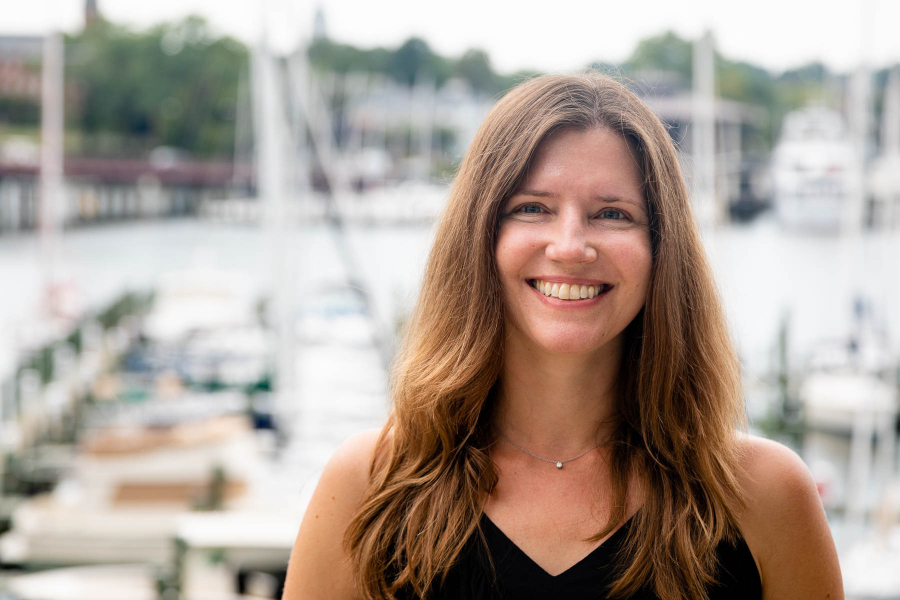My Clean Water Story: Lucinda Power
Working at the cross-section of people and the environment

Well before I began working with local leaders and community groups to reduce pollution to the Chesapeake Bay, I was a telephone operator for a hotel in Miami, Florida, planning for the next chapter of my life.
This was 2001, soon after I had graduated from the University of Maryland, College Park with an undergraduate degree in Women’s Studies. While that field of study was—and still is—a passion of mine, I really didn’t know what I wanted to do with it and thought moving to a completely different area (particularly one with a warmer climate) might give me the space to think about what to do next.
Miami was the first destination that came to mind. I had always enjoyed living near the water, especially in coastal areas, and year-round access to calm beaches and camping and fishing in the Florida Keys seemed like a pretty good way to spend my time until I figured out my next step. However, a year of being in the hospitality industry motivated me to get to it and narrow my focus. Eventually, I decided to move back home to Maryland to earn a graduate degree in Applied Anthropology. It was my love of travel and interest in studying human cultures that drove my decision to get this degree. Working in the environmental sector or for the federal government were the furthest thoughts from my mind. My goal was to be the Anthony Bourdain of anthropology.
I decided to take an environmental anthropology class in the first semester of grad school and was instantly hooked. I had found my niche and spent the next two years learning about cultural models and how they played out in an environmental context, which included spending time with watermen and farmers along the Chesapeake Bay. My graduate advisor had a home in Deal Island, Maryland and it was an easy decision to devote my fieldwork on the Eastern Shore, understanding how subsistence-based communities use, perceive and value the environment—particularly the role of regulations in farming and crabbing. I spent (very) early mornings on fishing boats and afternoons in chicken houses, speaking with those who are deeply reliant upon and interact with the environment for their livelihoods. At that point, I knew I wanted to be working on the Bay in some capacity.
Years later, the opportunity finally came. I’d been working for the Environmental Protection Agency at its headquarters in Washington, D.C., and while I enjoyed the work, my career to that point was definitely more regulatory in nature, with a 30,000-foot view of environmental issues. Then, a new position at the Chesapeake Bay Program opened up that would allow me to work at a more local level. In 2010, I joined the Bay Program’s Science Branch, coordinating with a multitude of stakeholders across the watershed to reduce pollution loads so that jurisdictions can meet the requirements of the Chesapeake Bay Total Maximum Daily Load.
The job was initially a steep learning curve but it continues to be an amazing opportunity. I’ve really honed a more personal connection with water—one that started in grad school but deepened with my time at the Bay Program. It has also led me to explore recreational experiences in the water that were outside of my comfort zone. I received my diving certification a few years ago and while that has exposed me to incredible beauty, I have also seen firsthand the impacts of pollution on our underwater ecosystems.
While I no longer live in Maryland, having first moved to Tiburon, California and now Denver, Colorado during the pandemic, my clean water story will forever reside on the banks of the Chesapeake Bay.

Comments
There are no comments.
Thank you!
Your comment has been received. Before it can be published, the comment will be reviewed by our team to ensure it adheres with our rules of engagement.
Back to recent stories